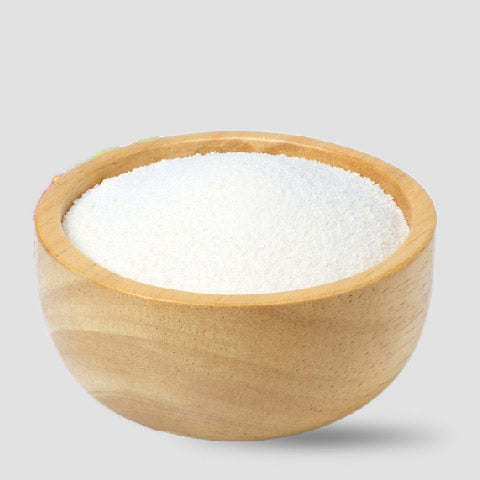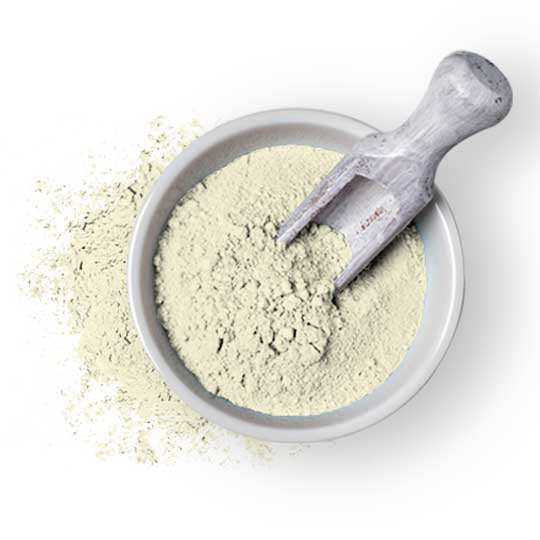We know how frustrating it is to crack the code of making cosmetic products with the right benefits and consistency. But don’t fret, as we are here to help you. Cosmetic products incorporate various raw materials; among them, thickeners serve a crucial function.

Thickeners are substances added to cosmetics to modify their texture and consistency, providing numerous benefits. Let’s see the roles of thickeners in cosmetic products and make the best-selling skin creams and scrubs.
What Are Thickeners?
Thickeners are ingredients used in cosmetic formulations to increase viscosity, enhance texture, and control the flow of products. These additives adjust the consistency and texture of various skincare, haircare, and makeup items, ensuring they meet consumer expectations and perform as intended.
Thickeners are carefully selected based on their compatibility with the formulation and ability to enhance its overall appeal. They are pivotal in achieving cosmetic items' desired feel, appearance, and performance.
Need Of Thickeners In Cosmetic Products
Thickeners play a crucial role in formulating cosmetic products, contributing to their aesthetics and functionality. This section will explore the need for thickeners in cosmetics products.
1. Texture And Consistency:
Texture and consistency is always more important than the potency of the products. Thickeners help create the desired texture and character in cosmetics, ensuring they are easy to apply and provide a pleasant sensory experience. The proportion of thicker can make different versions of the same product due to different textures and consistency.

2. Controlled Absorption:
The benefits of any product heavily depend upon its absorption capability, and thicker improves the absorption rate of any cosmetic products. Thickeners regulate the speed of product absorption into the skin, allowing for better absorption control and more practical application. Thicker also opens many gates for you to make unique skin and hair care products.
3. Longer Shelf Life:
A good product needs at least two years of shelf life; thickeners can help achieve this. They contribute to the preservation of cosmetic products by preventing ingredient separation and microbial growth, extending their shelf life. These methods also open up the addiction to other cosmetic beneficial ingredients.
4. Formulation Efficiency:
Thickeners can offer different consistency and provide a homogeneous mixture. Thickeners aid in efficiently blending various ingredients, ensuring a homogeneous and stable formulation. A homogeneous mixture allows you to develop a more complex formulation for better cosmetic results and products.
5. Enhanced Product Stability:
Making products is one thing, but over time, your products can lose this homogeneity and get separated. But don’t worry, a thickener can help. By preventing settling or phase separation, thickeners maintain the stability and appearance of cosmetic products over time. This also improves product consistency and its shelf life.
Common Types Of Thickeners In Cosmetics
In cosmetics, a diverse range of thickeners is employed to achieve the desired texture, consistency, and performance in various skincare, haircare, and makeup products. In this section, we will explore some of the common types of thickeners in cosmetics.
1. Gelling Agents Thickeners:
Gelling agents are substances added to cosmetics and personal care products to create a gel-like consistency. They help improve the spreadability and adherence of the product to the skin, making it easier to apply and ensuring it stays in place. You can use Gelling agents in products like gels, creams, lotions, and serums to give them a desirable texture and viscosity. Some common gelling agents include carbomer, xanthan gum, and agar.

2. Natural Thickeners:
Natural thickeners are derived from plant or natural sources. They are commonly used in clean and organic cosmetics to add viscosity to products while maintaining a natural and eco-friendly profile. These thickeners are used in various products, including natural and organic skincare, haircare, and personal care items. Natural thickeners include aloe vera gel, guar gum, and arrowroot powder.

3. Silicone-Based Thickeners:
Silicone-based thickeners are additives that contain silicone compounds. They are known for enhancing the texture and slip of products, making them smooth and easy to apply. Silicones can provide a silky, non-greasy feel. You'll find silicone-based thickeners in various skincare, haircare, and cosmetic products, such as primers, foundations, and hair serums. Dimethicone, cyclomethicone, and phenyl trimethicone are common silicone-based thickeners.
4. Starches and Derivatives:
Starch-based thickeners are derived from various types of starch, such as cornstarch or potato starch. They offer a natural and eco-friendly option for enhancing the consistency of products. Starches and their derivatives are used in various cosmetics, including organic formulations of creams, lotions, and powders. Cornstarch, tapioca starch, and rice starch are some common starch-based thickeners.
5. Acrylate Polymers:
Acrylate polymers are synthetic polymers widely used in cosmetics to provide stability, texture enhancement, and a smooth, non-greasy feel. They can help products maintain their integrity. Acrylate polymers are found in various skincare and haircare products, such as moisturizers, sunscreens, and hair styling gels. Common acrylate polymers include carbomer, acrylates/C10-30 alkyl acrylate crosspolymer, and polyacrylate-13.
How To Select the Right Thickeners For Cosmetics Products?
Choosing the right thickeners for cosmetic products is a crucial aspect of formulation. Several factors must be carefully evaluated to ensure the desired outcome. Firstly, the type of cosmetic product in question plays a significant role. For instance, a facial moisturizer may require a different thickener than a body lotion or hair gel. The desired consistency must also be considered, whether a lightweight lotion or a thick cream.

Compatibility with other ingredients is paramount. Thickeners should harmonize with emulsifiers, preservatives, and active components. Additionally, the target market's preferences are vital; some consumers favor natural thickeners, while others may prefer synthetic options. In conclusion, selecting the ideal thickeners involves a delicate balance between function, consumer appeal, and compliance with industry standards.
Conclusion
Thickeners are indispensable components in cosmetic product formulation, enabling the achievement of desired textures, enhanced stability, and prolonged shelf life. A well-chosen thickener can significantly improve the quality of decorative items and consumer satisfaction. Get the best product thickeners by visiting us at us vedaoils.com and getting discounts on your first bulk purchase.













 Sign in
Sign in Register now
Register now My Reward Points
My Reward Points









